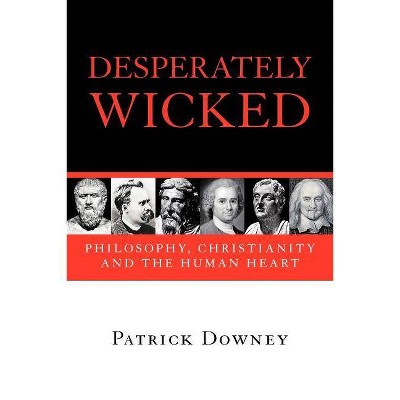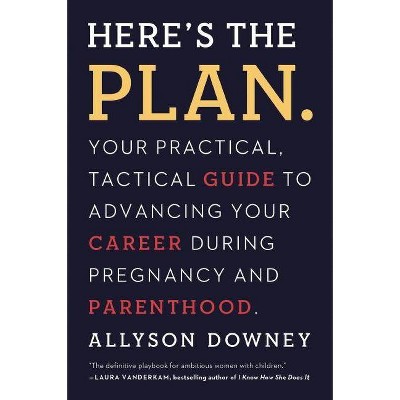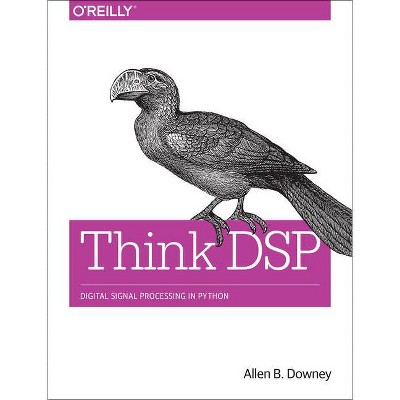Desperately Wicked - by Patrick Downey (Paperback)

Similar Products
Products of same category from the store
AllProduct info
<p/><br></br><p><b> About the Book </b></p></br></br>Patrick Downey explores the biblical writings of Genesis and the Hebrew prophet Jeremiah, the Greek tragedies, Plato, Aristotle, and political philosophers--such as Rousseau, Hobbes, Nietzsche and René Girard--to seek answers to the profound question, What is the human heart like?<p/><br></br><p><b> Book Synopsis </b></p></br></br>What is the human heart like? Theologians and philosophers have attempted to address this question, not just in the abstract, but concretely in personal, as well as social and political, dimensions. Patrick Downey explores the biblical writings of Genesis and the Hebrew prophet Jeremiah, the Greek tragedies, Plato, Aristotle, and political philosophers--such as Rousseau, Hobbes, Nietzsche and René Girard--to seek answers to this profound question. Recognizing our resistance to know the truth about our own hearts, Downey calls his readers to join with these thinkers in the search for truth and serious self-reflection. Not for the faint of heart, this book courageously addresses the most foundational question of our existence as individuals in community. What is the nature of the human heart and can we, will we, know it?<p/><br></br><p><b> Review Quotes </b></p></br></br><br>"This is a fine piece of work, one that makes a unique contribution to Christian philosophical reflection. Professor Downey offers an account of the Christian view of life and meaning that has practical implications for politics and what it means to be a follower of Christ in a fallen world. It is one of the best articulations of Christian political philosophy that I have read in quite some time."--Francis J. Beckwith, associate professor of philosophy & church-state studies, Baylor University<br><br>"An engaging first introduction to Girard's interpretation of Christ's saving work, and a thought-provoking devotional work for the philosophically-minded Christian. An interesting test case for students who are learning to develop integrated theological and philosophical points of view."--Sonia Waters, Koinonia<br><br>"Downey demonstrates a firm grasp of Western philosophical writings and draws from them a vivid depiction of the condition of the human heart. In turning to the Scriptures, he carefully and precisely correlates the depiction of the human heart found in it to that found in the philosophical writings. The end result is a work that provides a comprehensive view of the human heart drawn from the complimentary disciplines of philosophy and theology with the solution to the moral quandary being presented by the latter."--Kevin Staley, Christian Apologetics Journal, Fall 2009<br><br>"More than intellectually stimulating; it dealt with my heart in a very needful manner. It has been such a tremendous challenge and help to me."--TheoSource (theosource.com), May 5, 2009<br><br>"With great literary agility Patrick Downey masterfully explicates the meaning of the prophet's words: 'The heart is deceitful above all things, and desperately wicked: Who can know it?' (Jer 17:9). Beginning with Plato's ring of Gyges and incorporating threads as diverse as Plato and Aristotle's political philosophy, the Greek tragedies of Sophocles and Aeschylus, and the entire biblical narrative, Downey weaves an intricate tapestry exposing the intractable conflict between our desires to have, to be seen and to know, causing us to cry out with the apostle Paul, 'Wretched man that I am! Who will set me free from this body of death?' Downey brilliantly argues that it is only through the miracle of the incarnation, death and resurrection of the God-man, Jesus, that we can be rescued from our desperately wicked heart. I challenge you to read this book and not be profoundly changed by it."--Mark W. Foreman, associate professor of philosophy and religion, Liberty University<br>
Price History
Price Archive shows prices from various stores, lets you see history and find the cheapest. There is no actual sale on the website. For all support, inquiry and suggestion messages communication@pricearchive.us




















